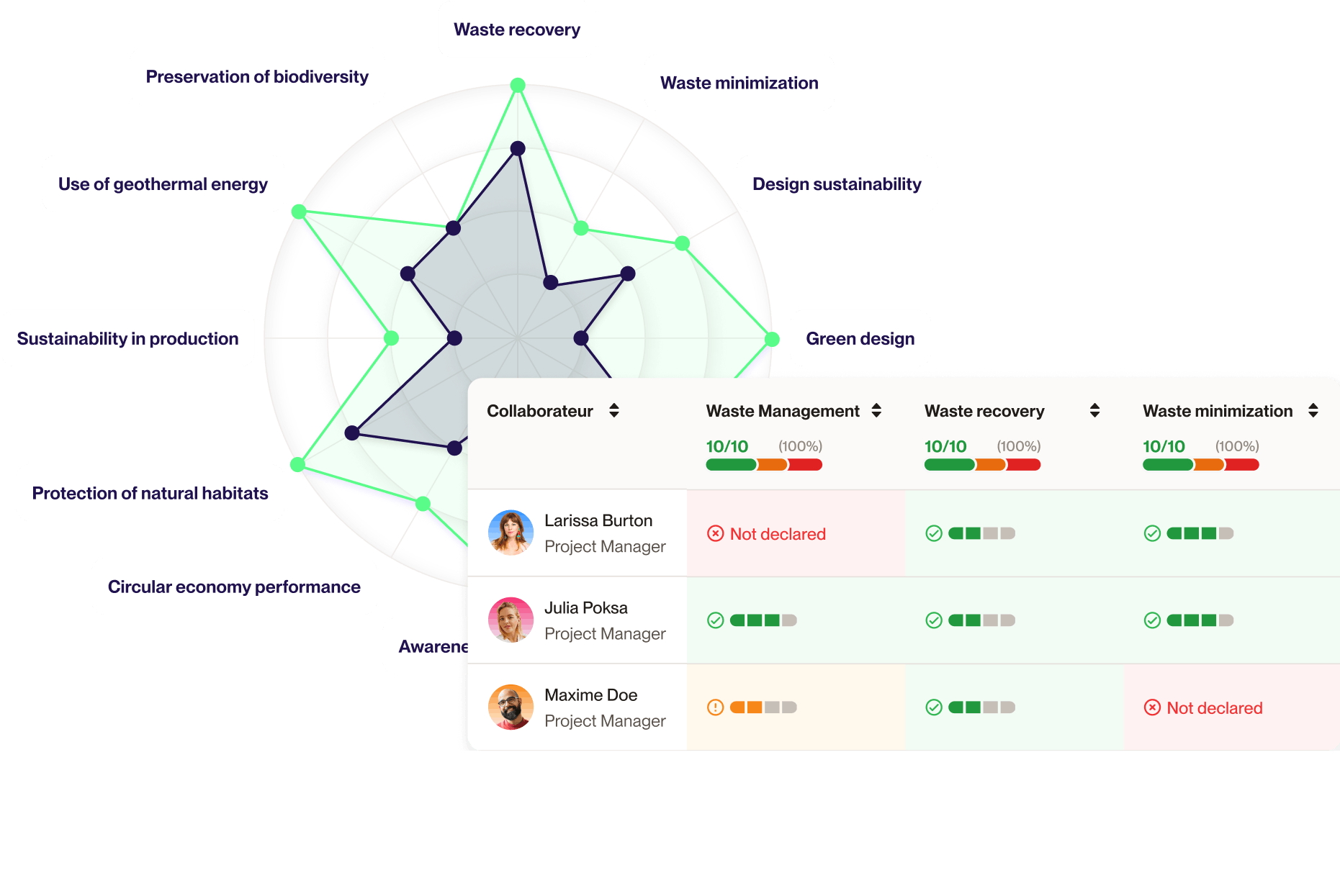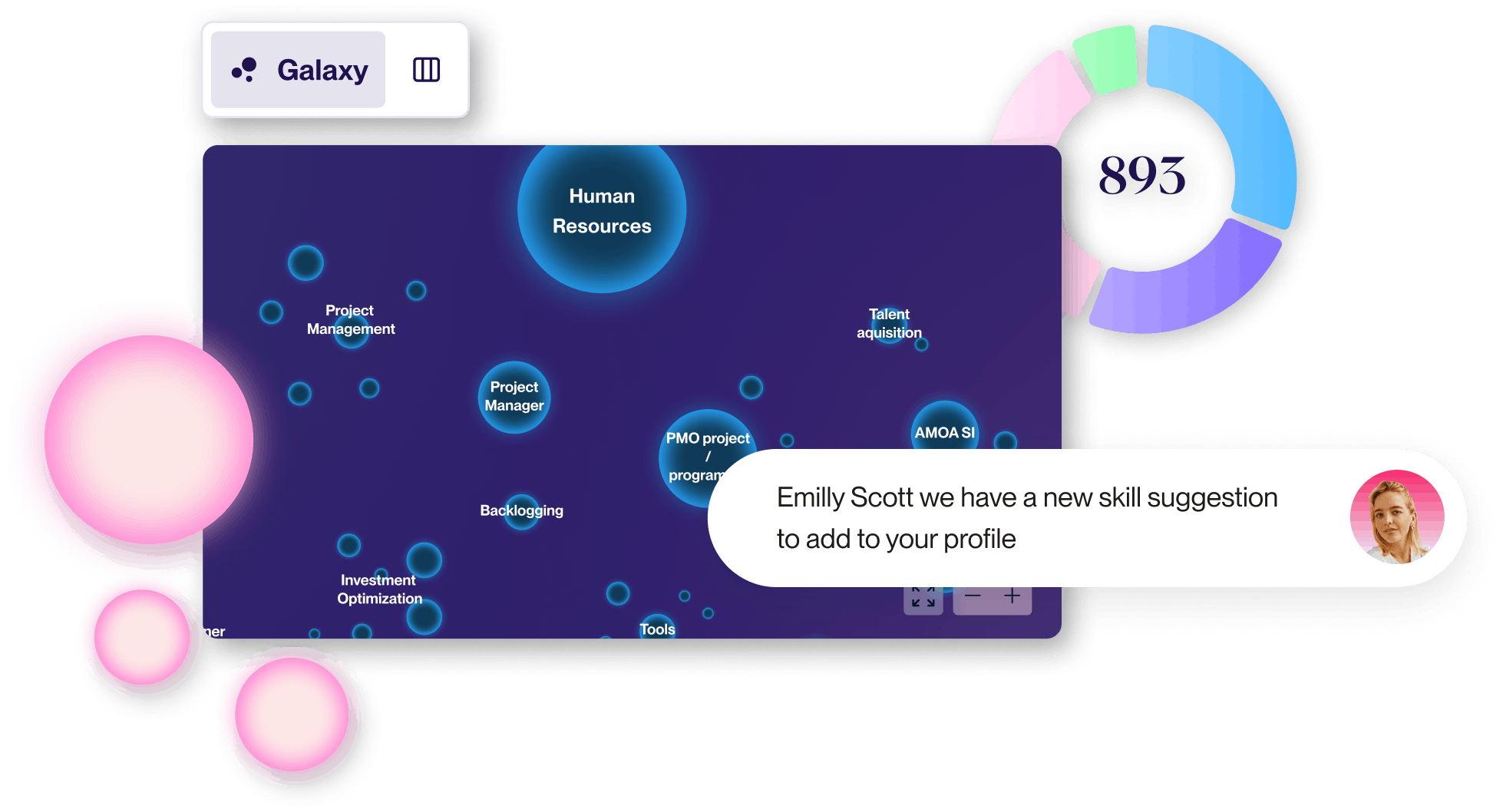10 HR trends and predictions for 2024

Are you ready for 2024? If the past three years have taught anything to HR teams, it is to expect the unexpected.
With budget preparation, strategy planning, internal events and leave management (not to mention burn out!), the holiday period and the new year is a busy time for HR, so it’s understandable if you don’t feel quite ready for what’s next.
Luckily, the fortune tellers of HR are here to help and identify the shape of future global HR trends. These predictions allow organizations to get an early idea of how they will need to manage their talents, address their needs, and stay competitive through the coming year.
Here we have collected the top 10 trends for HR in 2024. Incorporated into your strategy early, these predictions can positively impact your employees' well-being and performance in the coming year.
Read on for the top 10 predictions on what the world of work will look like in 2024.
10 Predictions of HR Trends in 2024
HR has experienced many changes in working styles and technologies these past few years. These include COVID-19, remote work, technological advancements with digital tools, and the introduction of AI in HR.
What awaits us in 2024? Let’s take a look at the major HR trends, including skill-based organizations, design thinking for HR and the evolving role of AI in talent management and acquisition.
1. Hiring managers will put skills at the forefront
It's no secret that HR and recruitment teams had a challenging year in 2023. With skill shortages and the talent bomb, employers struggled to recruit and retain employees with the right skills in the ever-changing job market.
In 2024, companies will realize that it's better to invest in improving their existing employees' CVs. To achieve this, they will need to focus on developing the skills of their teams.
To retain and recruit the right talent, it's important to have a culture of continuous training, mentorship programs, and peer learning. These resources will help your employees progress in their careers.
As we'll discuss below, organizations focusing on skills will have a competitive edge and remain ahead of the curve.
2. Skills-based organizations will continue to dominate
By focusing on skills and not on just degrees and experiences, organizations can tap into untapped talent sources and access new opportunities for everyone. A skills-based organization focuses on employees' skills, abilities, and potential, not just qualifications, for hiring, development, and promotion.
Numerous studies show that organizations that focus on skills will be more competitive and adaptable in the changing job market. These organizations are prepared to meet future challenges in hiring, growth, and development before their competitors.

3. Managers will play a bigger role in talent development
Managers will play a bigger role in career development. They can help HR teams invest in the workforce and reduce turnover.
The 2023 Global HR Research Report by Betterwork found that 64% of workers think their performance evaluation process is a waste of time. It will be important for HR teams to reorganize their performance evaluation process and adopt a new approach to the career development of their teams.
When employees feel their work is critiqued but have no motivation to work harder, they become disengaged. During annual reviews, managers and HR teams should create a progression path for each employee. They should also talk to employees about their personal and professional goals.
4. Career management will evolve to navigate the changing world of work
The needs of employees are changing with the arrival of new generations in the job market. Employees are now seeking a genuine experience throughout their professional journey, and this experience should not stop at recruitment.
Gallup found that the most important things for Millennials in a job are learning, interesting work, and advancement.
Traditional career plans no longer meet the requirements of the business or the expectations of employees, leaving them uncertain about their career progression. 2024 will be the year to design personalized and agile career paths that align the needs of the business with the goals, interests, and broader skills of employees.
However, most HR managers think that many employees don't understand their organization's career paths. Companies and HR should prioritize advancing current employees instead of hiring new ones. Offering internal mobility plans will be a key element in achieving this.
If 48% of companies identify improving talent progression and promotion processes as key business practices to increase talent availability, do you belong to that group? We strongly believe this will be one of the most important HR trends in 2024.
5. Employee experience will solve "quitting" trends
If "Quiet Quitting" or "Loud Quitting" has been trendy in recent years, it may be time for HR to look into the causes and deep reasons behind this trend, which doesn't seem to be stopping in 2023. As mentioned earlier, talents are looking for a genuine experience to stay in their company. If you want to limit turnover, it will be important to think about how you can better engage your employees in 2024.
Investing in the employee experience can solve your problems. According to a Gallup report, 41% of respondents believe that better engagement or corporate culture would improve their job. Additionally, over half (51%) are thinking about leaving their job.
In 2024, HR teams will need to connect with employees. They should understand why employees feel disengaged and how to improve their experience. This collaborative approach can reduce turnover and retain qualified employees that companies don't want to lose.
6. HR will evolve into employee experience designers
That being said, investing in employee experience requires recognizing the new role of HR. According to the study, "The changing face of HR", over 60% of leaders still see HR as an administrative role.
Talents bring value and contribute to company success, so HR professions have evolved. HR is changing from guarding rules to being a strategic partner for employees. The new goal is to manage and shape the talent experience from beginning to end.
We call this employee experience design. HR leads using the principles of design thinking to create engaging experiences for employees. This will align their skills with company goals and improve motivation at work. They thus manage to transform the employee journey and contribute to the development of skills-centered organizations.
7. AI automation will accelerate data decision-making
In 2023, artificial intelligence made headlines with the emergence of generative AI. HR might worry about losing their jobs, but it actually improves their work speed and decision-making. However, most HR functions are not prepared to effectively implement AI-related initiatives.
With data collected by AI, it can offer much more, such as in skills, career, and talent management. When used correctly, it can greatly expand opportunities for companies. They can automate processes and focus on employees' skills to align with business needs and job market demands.
Organizations and HR leaders require a framework to assess HR technology adoption. They should ask important questions about governance, readiness, employee adaptation, risks, and ethics.
So, in 2024, we say, "HR at the forefront of tech and AI!"
8. AI will drive workforce evolution
The remarkable growth of generative artificial intelligence like ChatGPT will continue to have a major impact on the workforce in 2024. As companies transform, they will add AI to their workforce and operations.
To ensure sustainable business growth, it is important to take a holistic approach to AI in the workforce. The lines between human tasks and machine capabilities are becoming less clear. AI can make repetitive tasks faster and better, and lessen the amount of work. Additionally, the difference between the best and worst workers shrinks. This shows that lower-performing workers are more likely to be among the top performers and vice versa.
As generative AIs advance, they will increasingly aid employees in being efficient. Businesses can now use artificial intelligence for many decisions, just like collaborative AI. In the future, the most and least performing will be similar. The difference will be between those who use generative AI and those who don't.

9. Diversity and inclusion will be more relevant than ever
2024 will be the year of the reinvention of diversity, equity, and inclusion. Six years ago, companies implemented the Equality and Citizenship law, which made non-discrimination training mandatory for all recruitment professionals in companies with more than 300 employees, but they are still far from complying.
According to The Adecco Group and Ipsos' study on hiring discrimination:
- 40% of recruiters and HR managers surveyed declare never having heard of this law.
- Only 45% of respondents say they have undergone at least one non-discrimination training for hiring.
However, the issue doesn't end there. According to a Gartner study, 42% of participants say their coworkers are not supportive of their organization's DEI initiatives. In the end, leaders in organizations don't include diversity or acknowledge its impact.
Offering a safe and inclusive workplace for everyone will be the motto for your DEI approach in 2024.
10. Work-life balance will be HR's first line of defense
The health crisis has raised questions about health and work-life balance. While the rise of telecommuting has allowed some to find their balance, it is not always enough for everyone. Today, populations face a decrease in purchasing power and an increase in prices, which can amplify the stress they may feel daily.
Total well-being encompasses physical, mental, emotional, social, and financial health. By promoting the well-being of employees in all these areas, organizations can improve productivity, reduce absenteeism, and boost employee morale.
But beyond employees, HR must also focus on their own health at work. In recent years, HR professionals have faced increasing pressures and demands. HR burnout is not just an issue of individual fatigue; it affects the effectiveness of entire organizations and can hinder talent retention and acquisition. When companies grow, their HR needs increase too. This means it is very important for companies to quickly notice and deal with burnout.
HR services are at the epicenter of the evolution of work dynamics. The Harvard Business Review emphasizes the importance of preventing staff burnout, and this is particularly relevant for HR professionals who constitute the first line of defense for employee well-being.
2024 looks like a year of change for HR, expanding their influence beyond their traditional responsibilities. Understanding these 10 HR trends will help HR not only meet immediate organizational needs but also anticipate the foundations of a sustainable future in this constantly changing world of work.
By embracing these changes, HR services can create a work environment where employees can thrive, and companies can achieve their goals. Although the challenges are considerable, the potential benefits for organizations, employees, and society as a whole are enormous.
The combination of innovation and strategic thinking in HR will stimulate growth, inclusion, and resilience. By assuming this expanded role, HR can lead companies to new heights. 2024 offers a world of possibilities. In this new era of work, it's time for HR services to chart a new course.


Ready to chart a new course for your people at work?
Learn about the tools 365Talents provides for skills management, strategic workforce planning, and more.

Uncover more HR insights









